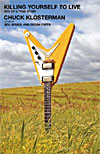The Pugilist Nemesis At Rest
Let me tell you a story.
The first couple months of college sucked. I was a pre-med student at a boring midwest state school who hung out with other boring pre-med kids from the midwest. It was like high school, except everyone wanted to be valedictorian. The best thing I could say about my doctor-to-be friends was that they were as exciting as organic chemistry.
One day, I accidentally walked into a dorm room where a couple slacker kids were on the floor playing Nintendo. Not even bothering to notice what game they were playing, I immediately focused on the poster hanging on the wall. It was a standard-issue Michael Jordan dunk shot -- the kind of poster that has no purpose other than to hang in a dorm room. Except the ingenious Nintendo players had taken a standard 8.5 x 11 piece of paper, cut a 3 x 3 hole in the center, taped it over the poster so that the hole highlighted one player in the fuzzy background on the bench beneath Jordan's splayed legs, and scribbled "Detlef Schrempf" on the poster.
I instantly knew that these guys were going to be my friends.
And now, let's have Chuck give his version:
- I met My Nemesis in November 1990. I walked into somebody's dorm room to play Nintendo, and he was sitting on the bed, holding an acoustic guitar on which he could play only one note -- the opening note of Tesla's "Love Song." He was wearing a denim jacket, and he had used a black Magic Marker to draw the symbol for anarchy on the back. It was just about the silliest thing I had ever seen. We immediately became friends.
 The first story is how I remember meeting Chuck Klosterman; the second is how he tells it in his new book, Killing Yourself To Live, which officially comes out today.
The first story is how I remember meeting Chuck Klosterman; the second is how he tells it in his new book, Killing Yourself To Live, which officially comes out today.
I'm not here to tell you Chuck is lying about how we met. For his last book, I did a point-by-point response to what he wrote about us, and he almost seems to concede fuzzy historical remembrances this time around by subtitling the book "85% of a True Story." Actually, I might be completely wrong about what really happened. In fact, "what really happened" is probably a useless concept when discussing drunken Nintendo battles.
(But just for the record, let's get a parenthetical in here. I am resisting the temptation to tell you the 15 percent that is inaccurate in his telling of our times together -- which you can hear for yourself in this MP3 of him reading from that chapter. But again, that's not what I'm here to talk about, because, for the most part, it's "true" (especially when you put it in quotes), and whatever isn't true is better this way anyway.)
Here's where I should tell you about the book. KYTL is basically a travelogue disguised as a memoir. First devised as an article for Spin, the ostensible narrative is Chuck travelling around America and visiting the places that rock stars died -- but that's all subterfuge for reflecting on various relationships and friendships from the past (and that's all subterfuge for reflecting on life and death). When he comes to Minneapolis (in theory, to visit the place Bobby Stinson died), the book recounts how a group of music critics (plus me, "someone who probably should have been a music critic") go to the Kitty Cat Klub, drink too much, argue way too much, go back to my house, drink more, climb on the roof, and nearly kill ourselves. And yeah, there's some stuff about the fist-fights we had in college.
Now that's out of the way, so let's get back to what I wanted to say. Look at the two different stories at the top of this page -- now ask yourself this: Which story is better? In college, this was the kind of thing that Chuck and I would have argued about for a week -- not just whose story is better, but what percentage of other people would think each is better, and who told the story most economically, and which story was more historically true, and if historical accuracy even matters, and who would play the parts in the movie of this story, and what Kant thought "better" actually meant, and so on. It was completely nuts.
But it was also probably the most important time of my life. Even though there were several occasions where I literally wanted to strangle him, nowadays my emotions about Chuck are pretty simple: I think he's funny, and he only occasionally pisses me off. As for "what really happened," it's all a blur, some of it intentionally so. But I now know this: I learned more about friendship from him than anyone else in my life.
But I can still totally kick his ass.
The link farm:
